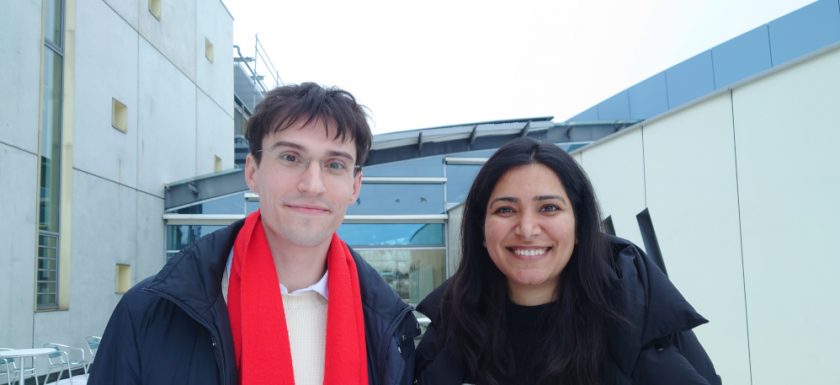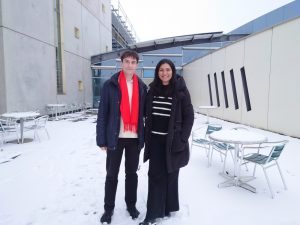
They could be busy enough inside the lab, but they are active as well in the HZB DocTeam and in Helmholtz-Juniors (HeJus), which represents the interests of all doctoral researchers across Helmholtz Association (HGF). At the recent HeJu-retreat Namrata Sharma was elected as vice speaker of the Events Team and Thomas Gries as vice speaker of the Working Conditions Team. A short conversation about what, how and why?
What are your concrete tasks as spokespeople within Helmholtz Juniors?
Thomas: In the working conditions team, we are concerned with contracts and legal conditions of doctoral researchers in HGF, with the aim of improving the working conditions for DRs. It is interesting, and sometimes worrying, to see that the situation of doctoral researchers is different in different research centers. There is large room for improvement and more fairness.
Namrata: In the events team, we organise two meetings a year with Doctoral Representatives from all Helmholtz Institutes. The mid-terms are always organised at the Helmholtz headquarters in Berlin, and Annual meetings are organised every time at a different Helmholtz Center in Germany. These meetings are organised to share the ideas and progress towards improving the working conditions across all Helmholtz institutes. Additionally, we organise a monthly online meeting providing a platform for all HeJus to enhance our social bonding.
How can you help to improve the conditions for doctoral researchers?
Namrata: Within only 6 months of our term as Doctoral Representatives at HZB, we have already organised several social events and provided platforms to doctoral researchers to meet each other, collaborate and make friends. These social events additionally give us an opportunity to discuss the needs and wants of doctoral researchers. As their representative we keep their perspective in front of the graduate centre and talk in respective boards about it, such as the HZB-internal Scientific Board. We are a voice to our community.
Thomas: The next big project is a new edition of the N2 survey on mental health and working conditions among doctoral researchers of the participating research associations, such as Max-Planck, Leibniz and Helmholtz. The last N2-survey dates back to 2021 and unveiled strong pressure on many doctoral researchers, resulting in higher anxiety and depression levels than in the rest of the population. The I see large potential for improvement is this field. The full report will be published at HZB soon! In addition, we set up projects in our team, like writing blogs on mental health to create awareness.
Why are you active in the HZB DocTeam and in the Helmholtz-Juniors?

Namrata. I want to engage with something apart from the lab work and contribute to a platform to talk with people outside my own group. We can learn from each other and improve conditions.
Thomas: We would also like to increase visibility of Helmholtz Juniors at HZB, especially with respect to the upcoming N2-survey, where we aim for large participation of HZB’s Doctoral Researchers.
Namrata: Not to forget, it widens the horizon. For instance, as spokespeople of the HeJus, we are looking forward to meet Otmar Wiestler, the president of Helmholtz and discuss with him.
Thomas: We have a voice, that is my motivation.
Read more on Helmholtz Juniors and their engagement for mental health:
Letter by the Helmholtz Juniors
Some data on mental health in Science
Letter by the Helmholtz-Juniors on brain health
